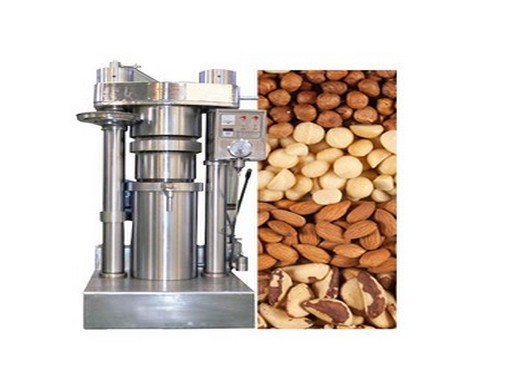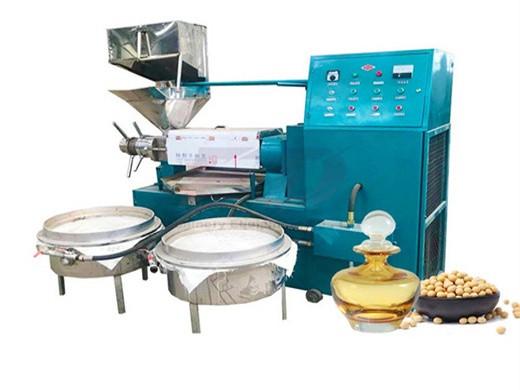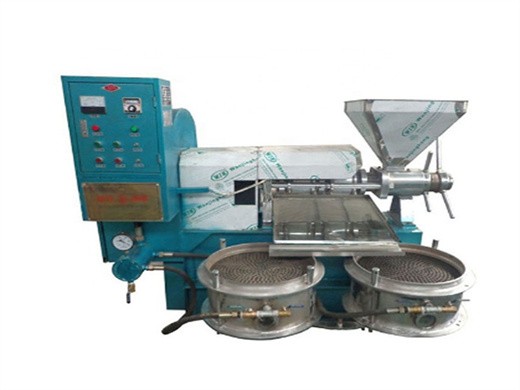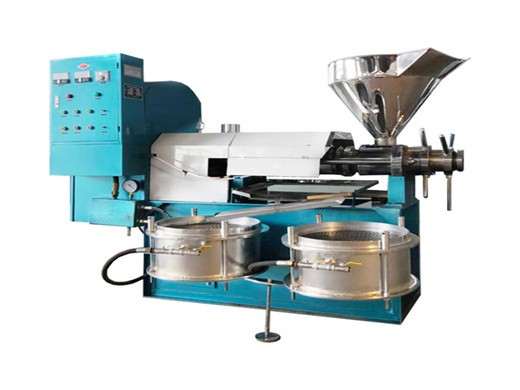transesterification of non-edible vegetable oil press machine for lubricant
Transesterification of Non-Edible Vegetable Oil
from non-edible vegetable sources in the future due to their properties, performance, and emission characteristics. Jain and Suhane (2012) proposed the use of non-edible vegetable oils as an attractive alternative to petroleum oil-based lubricants. Oil varieties of such as Jatropha, Moringa and castor oil
A Review of Bio-lubricant Production from Vegetable Oils Using Esterification Transesterification Process Conference Paper (Available) in MATEC Web of Conferences 156(15) · March 2024 with
Transesterification, Modeling and Simulation of Batch
Transesterification, Modeling and Simulation of Batch Kinetics of Non-Edible Vegetable Oils for Biodiesel Production Pankaj Tiwari, Rajeev Kumar and Sanjeev Garg Department of Chemical Engineering, IIT Kanpur, 208 016, India Abstract Biodiesel derived from renewable plant sources is monoalkyl esters of long chain fatty acids
Alkaline metal hydroxides (KOH and NaOH) are cheaper than metal alkoxides, but less active. They can give the high conversions of esters just by increasing their concentration from 1% to 2%. Various methods of transesterification of vegetable oil to develop bio lubricant are listed below. 5. Epoxidation
Transesterification of Vegetable Oils: a Review
Transesterification of Vegetable Oils In the transesterification of vegetable oils, a triglyceride reacts with an alcohol in the presence of a strong acid or base, producing a mixture of fatty acids alkyl esters and glycerol 25,26 (Scheme 4). The overall process is a sequence of three consecutive and reversible reactions, in which di-
sourced from fatty acids of vegetable oils may result in significant cost reduction of the synthesized lube oil [5]. In the study carried out by Ghazi et. al. [6], the kinetics of the transesterification synthesis of bio-lubricants from jatropha curcas oil was done at varying temperatures and constant pressure. Their findings showed that the
Aspects of Non-edible Vegetable Oil-Based Bio
Non-edible vegetable oil-based bio-lubricants are eco-friendly due to their biodegradability, non-toxicity and net zero greenhouse gas emission. This study presents the potential of using non-edible vegetable-based bio-lubricants in the automotive sector. The first part of the study discusses about the resources, properties, as well as
Sustainability of a non-edible vegetable oil based bio-lubricant for automotive applications: A review Y ashvir Singh 1*,Abid Far ooq 1,Aamir Raza 2,Muhammad Arif Mahmood 3,Surbhi Jain 4
Synthesis of Bio-Diesel and Bio-Lubricant
The use of different lower and higher alcohols viz; methanol, ethanol, n-propanol and n-octanol, for the synthesis of methyl, ethyl, propyl and octyl fatty acid esters by transesterification of vegetable oil (triglycerides) with respective alcohols also known as ‘Bio-diesel’ and ‘Bio-lubricants’ was studied in detail.The reactions were carried out in a batch process.
Production of Biodiesel from Non Edible Oil and its Properties 1546 Biodiesel is an alternative fuel made from renewable biological sources such as vegetable oils both (edible and non edible oil) and animal fats (Antony Raja et al ., 2011). It can be defined
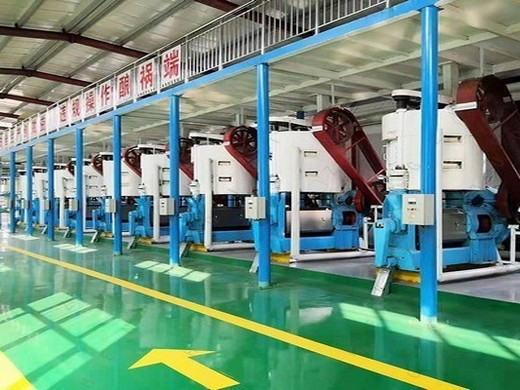
What happens if I use vegetable oil instead of machine
Vegetable oil will gum up, attract dirt and dust, and eventually end up a huge mess. DO NOT use it. Mineral oil is a food-safe oil not normally used as a cooking lubricant, but it is the go-to for replenishing woods and lubricating mechanical parts of cooking utensils. It won't gum up, and is OK to use in a pinch. Most machine oils are a bit thin; they'll get into crevices like in door hinges
Get Price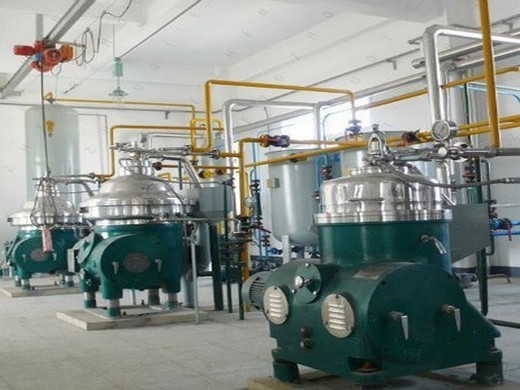
Transesterification Kinetics of Waste Vegetable Oil
The kinetic analysis method using the non-isothermal technique was proposed to determine the kinetic parameters for the transesterification reaction of waste vegetable oil (WVO) in supercritical alcohols. To investigate the transesterification of WVO, experiments have been carried out with WVO and alcohols at three molar ratios of 1:6, 1:12 and 1:18 for both supercritical ethanol (SCE) and
Get Price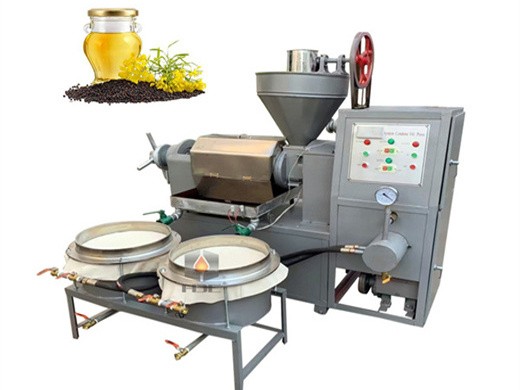
Non-Edible Plant Oils as New Sources for Biodiesel
Moreover, these oils could be more expensive to use as fuel. Hence, the contribution of non-edible oils such as jatropha and soapnut will be significant as a non-edible plant oil source for biodiesel production. Jatropha is grown in marginal and waste lands with no possibility of land use competing with food production.
Get Price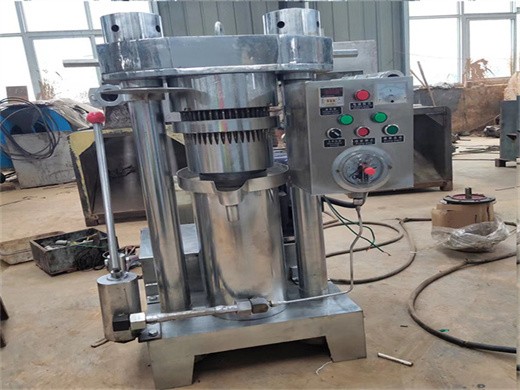
Transesterification of vegetable oils: a review
Transesterification of Vegetable Oils. In the transesterification of vegetable oils, a triglyceride reacts with an alcohol in the presence of a strong acid or base, producing a mixture of fatty acids alkyl esters and glycerol 25,26 (Scheme 4).
Get Price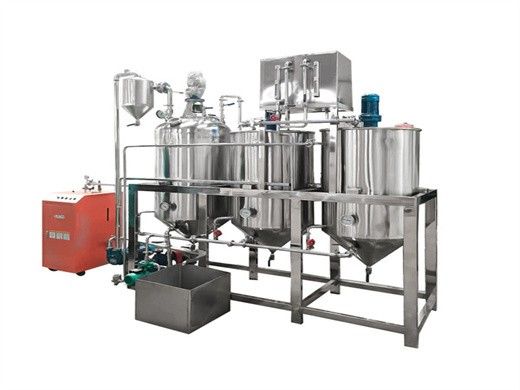
Transesterification of trimethylolpropane and rapeseed
Biodegradable trimethylolpropane [2-ethyl-2-(hydroxymethyl)-1,3-propanediol] esters of rapeseed oil fatty acids were synthesized by transesterification with rapeseed oil methyl ester both by enzymatic and chemical means, both in bench and pilot scales. Nearly complete conversions were obtained with both techniques. A reduced pressure of about 2
Get Price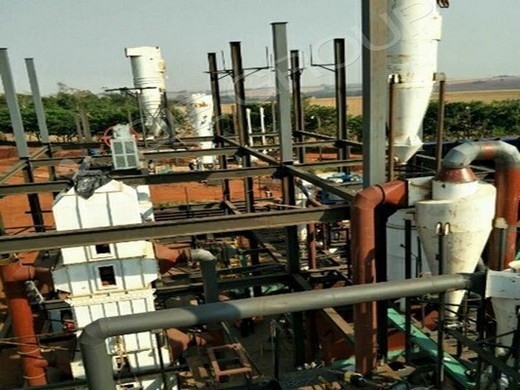
Available online a t pelagiaresearchlibrary
objective of the present study is to produce biodiesel from vegetable oils (edible and non-edible oil) and to use micro-emulsions with solvents ethanol and methanol following acid, alkali and fungal enzyme catalysis methods. The best suited method of biodiesel production was ethanolic and alkali mediated transesterification process rather
Get Price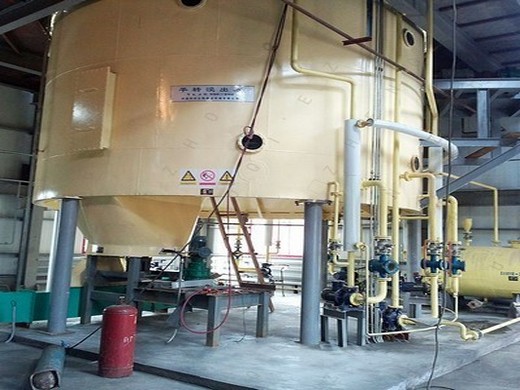
Studies on esterification of Free Fatty Acids in biodiesel
Studies on esterification of Free Fatty Acids in biodiesel production. UGent Francqui Chair 2013/2nd Lecture . 1 March 2013 . Contents • stIntroduction Link with 1 Lecture • Effect of FFAs in Vegetable Oils and Fats • Homogeneous processes for high FFA feeds • Heterogeneous catalysis for FFA conversion • Esterification in a Batch reactor • Esterification in a fixed catalytic
Get Price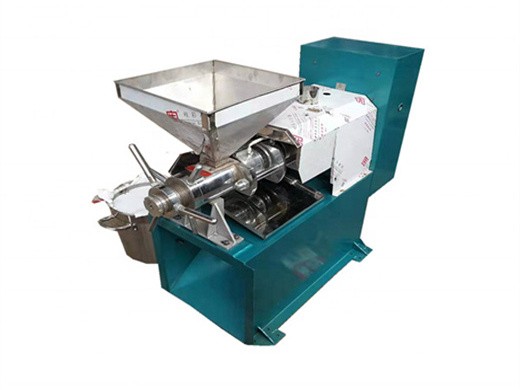
TRANSESTERIFICATION OF EDIBLE VEGETABLE OIL
transesterification of vegetable oils proceeds faster than the acid-catalyzed reaction and the alkaline catalysts, which are less corrosive than acidic compounds. The mechanism of the base-catalyzed transesterification reaction in vegetable oil is shown in the Fig. 2.1. In the first step (eqation.1) of reaction the base with alcohol,
Get Price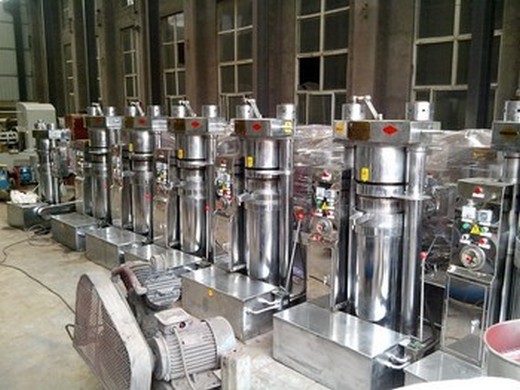
Experimental Study on The Use of Neem Oil as Lubricant
lubricants. The oil extracted from different edible and non edible seeds are used in the production of the lubricant. The use of bio lubricant from vegetable oil can also reduce the cost of the lubricants. There are two ways to use vegetable oil as a bio-Lubricant, either by directly blending vegetable oil with commercial lubricant or
Get Price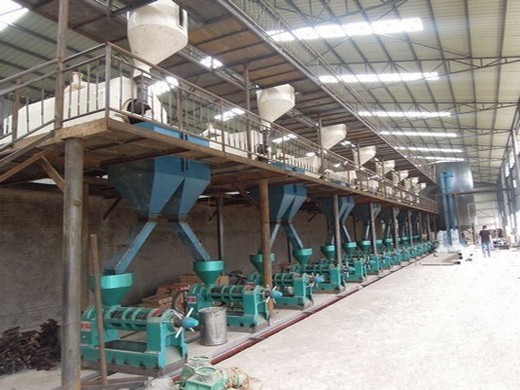
Vegetable oil
Vegetable oils, or vegetable fats, are oils extracted from seeds, or less often, from other parts of fruits. Like animal fats, vegetable fats are mixtures of triglycerides. Soybean oil, rapeseed oil, and cocoa butter are examples of fats from seeds. Olive oil, palm oil, and rice bran oil are examples of fats from other parts of fruits. In common usage, vegetable oil may refer exclusively to
Get Price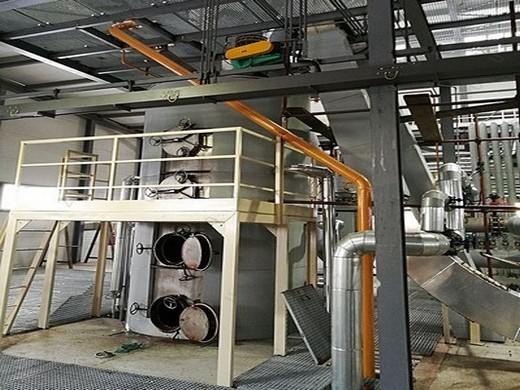
Optimization of Alkali-Catalyzed Transesterification
Gas chromatography was used to determine the fatty acid composition of Brassica carinata oil and its esters. Results revealed that the free fatty acid content is a notorious parameter to determine the viability of the vegetable oil transesterification process. In this sense, it was not possible to perform a basic transesterification using
Get Price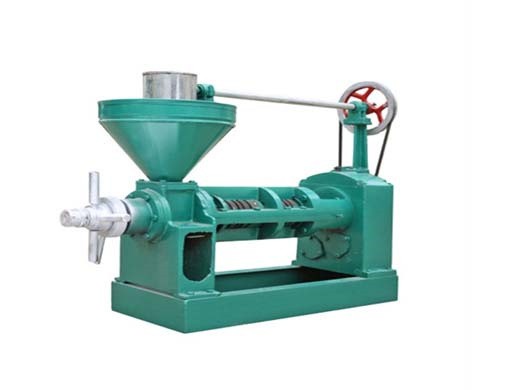
Jatropha Oil Refining Process and Biodiesel Conversion
the Jatropha crude oil was suitable for biodiesel making. The biodiesel obtained from transesterification process had high qualities that reached the standards for vegetable oil- based fuels and could be used in diesel engines without modifications. Biodiesel has already been verified as suitable fuel for diesel engines. Biodiesel from
Get Price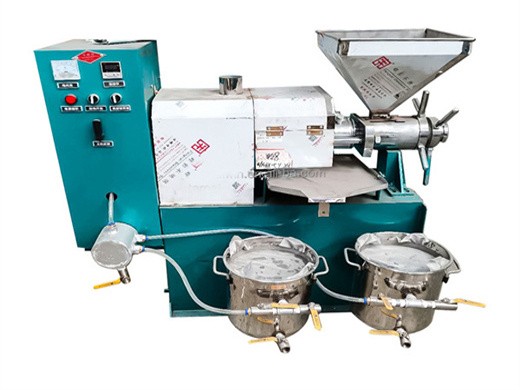
Biodiesel production from non-edible plant oils
Biodiesel production from non-edible plant oils Biodiesel production from non-edible plant oils Banković-Ilić Ivana B.; Stamenković Olivera S.; Veljković Vlada B. 2012-08-01 00:00:00 Because of biodegradability and nontoxicity biodiesel has become more attractive as alternative fuel. Biodiesel is produced mainly from vegetable oils by transesterification of triacylglycerols.
Get Price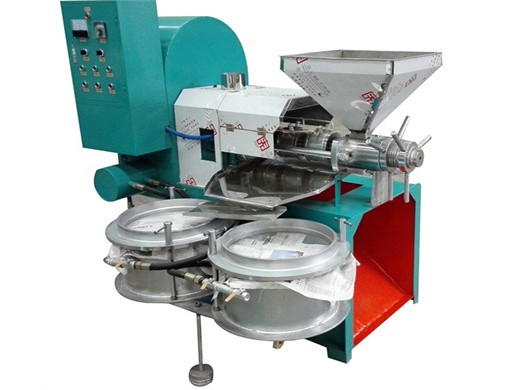
Evaluation of Process Parameters for Biodiesel Production
Biodiesel from waste frying oil is an effective alternative fuel to conventional diesel and can be directly used as fuel in a diesel engine without any modifications to the engine. The major objectives of this work were to produce and compare the biodiesel yield from waste frying vegetable oil (WFVO) and waste frying palm oil (WFPO) using transesterification process.
Get Price
Production of biodiesel by enzymatic transesterification
Exploiting non-edible oils is more necessary to reduce dependency of edible oils for biodiesel production. The current study investigated biodiesel production from non-edible Salvadora persica seed oil (SPSO) and crude coconut oil (CCO) by Burkholderia cepacia lipase acting as a biocatalyst in a solvent-free system. The biodiesel yield produced
Get Price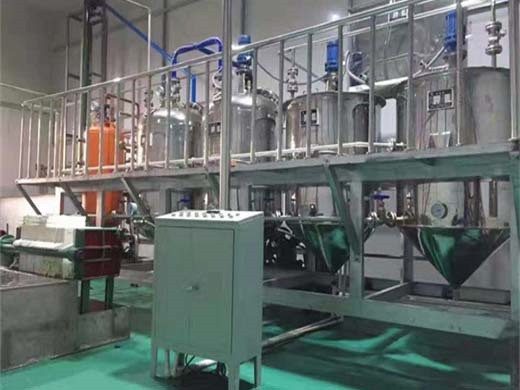
Identification of Non-edible Seeds as Potential Feedstock
The high price of biodiesel derived from food grade vegetable oils makes it non-viable to compete economically with fossil based diesel. Less expensive, non-edible vegetable oil/plant oil as potential feedstock for biodiesel production[3], is one of the key re-source of the renewable bioenergy. 2. Identification of Non-edible Seeds
Get Price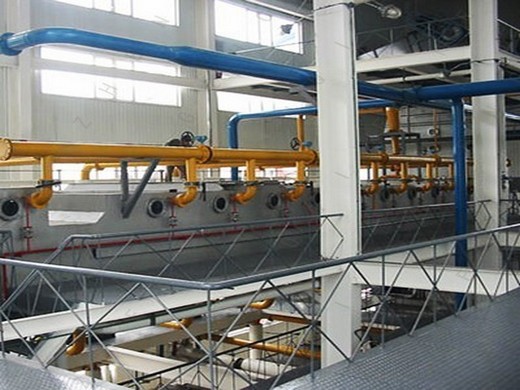
Biodiesel: an Alternative fuel Produced From Vegetable
The general way to produce biodiesel fuel is by transesterification of vegetable oil with methanol in the presence of either alkaline or strong acid catalysts. Transesterification reaction is quite sensitive to various parameters. An ideal transesterification reaction differs on the basis of variables such as fatty acid composition and the free fatty acid content of the oil. Other variables
Get Price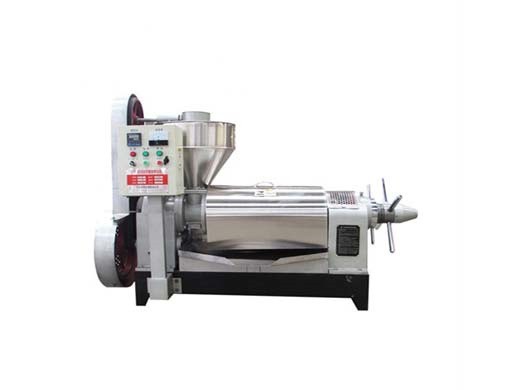
production of esters from vegetable oils oil pressing
Vegetable oil Wikipedia. The following triglyceride vegetable oils account for almost all worldwide production, by volume. All are used as both cooking oils and as SVO or to make biodiesel. According to the USDA, the total world consumption of major vegetable oils in 2007/08 was: Get Price
Get Price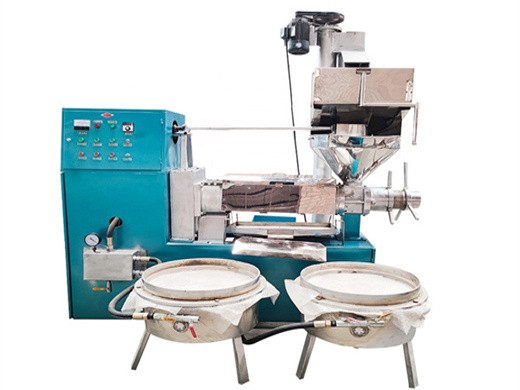
Production and Characterization of Biodiesel from Brebra
To make biodiesel production competitive and commercially attractive a sustainable supply of less expensive oil source is crucial. As a result, in many countries the use of non-edible vegetable oil for biodiesel production is becoming very popular. The use of non-edible
Get Price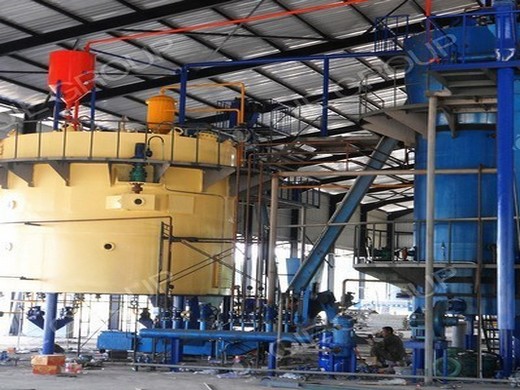
Optimization, Transesterification and Analytical Study
Production of biodiesel from non-edible oils is one of the effective methods to reduce production costs and alleviate the obstacle of traditional raw material supply. Rhus typhina L. (RT) is a promising non-edible plant because it grows fast and has abundant seeds. But previously reported oil content of RT was only 9.7% and 12%. Further research into improving the biodiesel production of RT
Get Price
